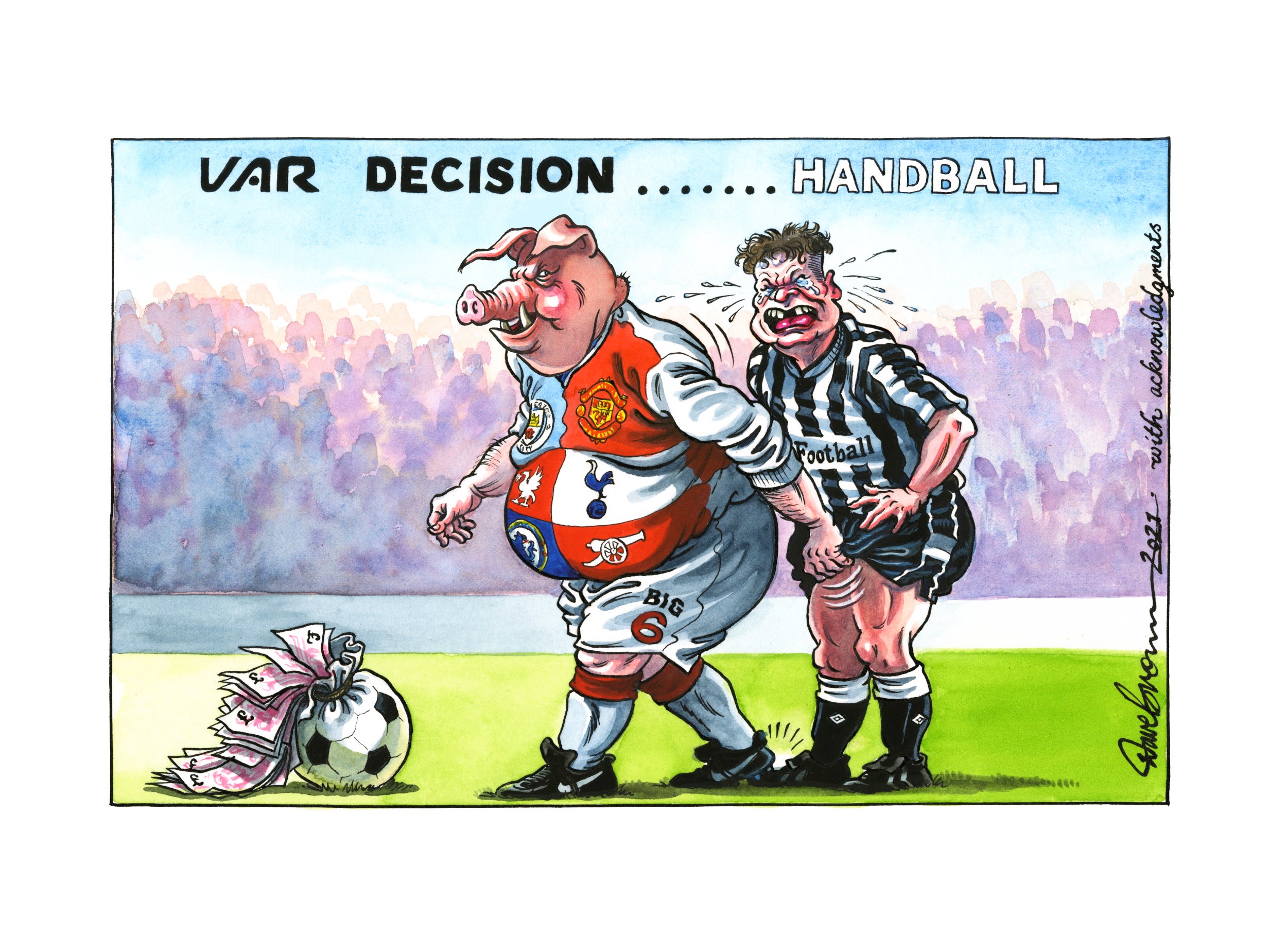Florentino Perez, president of Real Madrid and chair of the much-maligned European Super League, may have many virtues as a businessman, but he is a poor advocate for the new venture involving his famous old club and a number of other football enterprises.
Mr Perez has said that the aim of the Super League is as lofty as seeking to “save football”, a claim that is so audacious as to be close to fiction.
Yet, the venture is a typical example of capitalist concentration – larger organisations driving smaller ones out of business, in this case by outbidding them for the raw material: talented players. Yet even in normal businesses, the authorities have the right to protect the consumer when competition turns into market manipulation, and football is no ordinary business.
Indeed, the possibility – probability – of erratic player performances and the jeopardy of sporting and financial losses are intrinsic to the success of the “product”. Under a Super League, there would no competition. In the long run, it will kill the very clubs that are now so convinced it will lead to financial salvation.
Some, sadly – no names – would find themselves perennially at the foot of the table, pitiful rather than proud, in a state of purgatory. Relegation would be a mercy. Football may be disrupted and disfigured by this latest excrescence, but it will recover and survive, and indeed prosper anew. The Super League clubs would continue to operate in a sort of parallel football universe, with nothing more than a badge and a name to link them with their past.
A great many fans wish nothing of the sort for the clubs they hold dear, or the game at large. The vociferous reaction to the plans has clearly stunned some of those who have been part of the creation of the competition, with all six Premier League clubs now suggesting they want out.
The issue is so sensitive that politicians from across the spectrum have been quick to stand behind those who see the Super League as a dead end – there are too many votes in marginal towns and cities at risk to stand silent on the sidelines. The prime minister who kills English football will not be thanked for his failure, as Boris Johnson well knows.
The foundations for The Super League were built on the strength of the collective will of the teams involved. The bullish nature of the initial announcement from The Super League’s creators has given way to a realisation for some owners that it is just not worth the risk. At least for now.
So what about in future? Mr Johnson and others across the political and footballing worlds have been given a taste of what could happen to the “beautiful game”. The EU is probably in a better position than England to restrain the Italian and Spanish clubs with its strong EU tradition of antitrust laws and specific laws relating to sport and that may be sufficient to make all concerned think again.
There will always be a fanbase across the world that would welcome miscellaneous groups of very expensive footballers playing each other in half-hearted fashion for as many matches as the players can be bothered to turn up for. But that is not football as we know it, and it appears we are not there yet.




Join our commenting forum
Join thought-provoking conversations, follow other Independent readers and see their replies
Comments